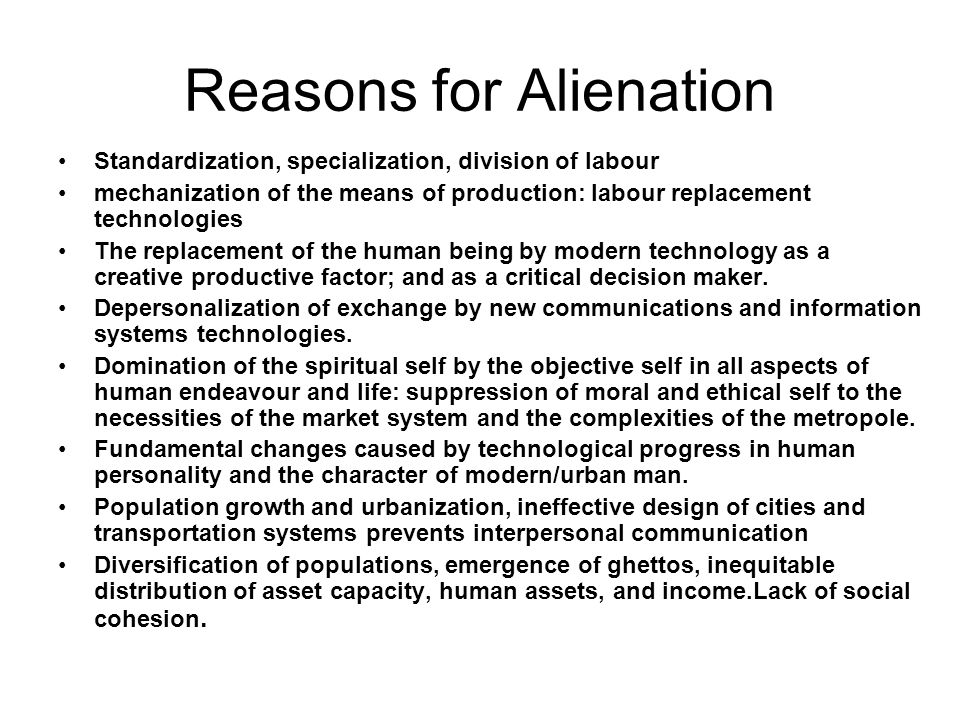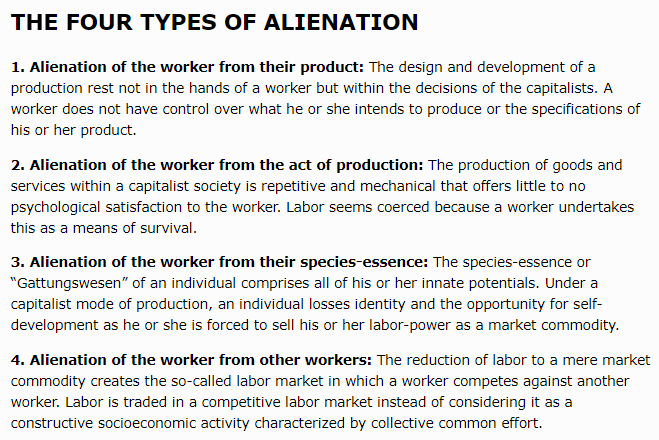Relevance: Sociology: Sociological Thinkers: Karl Marx
INTRODUCTION
Marxist Theory Perhaps no thinker in human history has had a greater impact, or has been more misunderstood, than Karl Marx. Fromm (1961) notes that Marx’s conception of mankind has been distorted in the United States largely for political reasons. Due in large part to the cold war, Marx’s thinking has been discredited and devalued in American thought.
ANALYSIS
When it is discussed, it has largely been relegated to economics or politics. However, according to Fromm, Marx’s main concerns were for the liberation of man/women; his focus was the overcoming of alienation and the restoration of his/her capacity to be fully human.
Fromm sees Marxist thought as constituting a “spiritual existentialism in secular language,” opposed to the coercive and alienating effects of capitalism. Marx’s main concern was not economics, but the relationships and effects of economic structures on man and his social relationships.
For Marx (Ollman, 1971), a society’s mode of production is the determining factor in the creation of consciousness and human relationships. Therefore, economics and labor were not necessarily important as an end in themselves, but as means of understanding human consciousness. Central to Marx’s view of human kind, and most relevant to our analysis of depression, is the notion of alienation.

Marx (1844) theorized that, through the processes of the division of labor, the structural hallmark of capitalism, work shifted from being an expression of one’s creative capacity to being an activity that made him/her isolated from him/herself.
Work becomes merely an object, a means to an end, and stands in opposition to workers’ best interests or life plans. This sense of estrangement and disengagement creates a sense of alienation, in that the object (work) is external, hostile, and powerful independent of the worker.

Thus, the worker is oppressed and subjugated in the process of this alienated labor. Work, which was once an outlet for self-expression and a sense of pride, now becomes an alien means toward meeting the economic goals of ruling class elites.
Therefore, the worker becomes estranged (alienated) from their work, and in the process from themselves. According to Fromm (1961) alienation, or estrangement, means that man/woman does not feel that he/she is a part of the world, but that he/she remains alien and separate from the world, from other men and women, and from him/herself.
The alienated man/woman is “empty, dead and depressed” .
Seeman (1959) breaks alienation into five main components: powerlessness, self-estrangement, isolation, meaninglessness, and normlessness.
Mirowsky and Ross (1989) assert that the loss of control and power caused by alienation is a central component to many experiences of depression. They associate depression with the social variables of powerlessness, structural inconsistency, alienated labor, and dependency.
To Marx (Ollman, 1971), alienation did not begin in capitalist societies, but it was within the context of early industrialization that man/woman became most estranged from his/her labor, and thus from him/herself.
Marx saw the work of the industrialization as being labor for the sake of production of things not for the purpose of man/woman expressing his/her true nature. In other words, labor became the end, and man/woman became the means.
Under previous modes of production, man/woman’s use of tools in manufacturing objects was a direct expression of him/herself, controlled by his/her own hands and will. Under industrialization, the machine controlled man/woman’s motion; his/her expression and use of intelligence was negated.
Postman (1992), in his psychohistorical account of technology, affirms that new technologies, and our relationship to them, affect the way we feel about our lives, others and ourselves Theory of Oppression Research exists which correlates membership in an oppressed group with susceptibility to various mental illnesses, specifically depression (Burns, et al., 1995).
Being a member of an oppressed group makes one susceptible to life circumstances and stressors that leave one vulnerable. Oppression becomes a multiplying psychosocial factor that can lead to an increase in depressive symptoms.
Depression is one of the main impacts of oppression (Allport, 1954; Bulhan, 1985; Chodoff, 1997; Dubois, 1993). Allport (1954) developed the concept of the “intropunitive” response in his analysis of the effects of discrimination. “Intropunitive” responses are the internalization of beliefs about oneself that are propagated by the dominant group.
According to the theory, when it is not safe for an oppressed group to express their rage from being the targets of prejudice outwardly, they become “intropunitive” or self-punitive.
Allport observed that oppressed people who become “intropunitive” tend to feel intensely insecure, guilty and ashamed, hallmarks of depression. Foster (1993) calls this perspective the “mark of oppression” theory.
He notes that “mark of oppression” theorists focus on the psychological damage created by experiences of oppression. Franz Fanon (1963) an Algerian psychiatrist, observed this phenomenon with clients in Northern Africa.
He found that the oppression caused by racism and colonialism was responsible for many types of mental health disorders, including depression. According to Fanon, oppression leads to a “negation of the self,” causing one to lose touch with who he/she is.
Oppression strips one of his/her humanness, leading to a sense of confusion and despair. Other commentators in other contexts have observed the internalization of negative concepts about the self as a response to oppression.
Passive acquiescence and its concomitant depression are not merely dysfunctional reactions, but necessary for survival (Allport, 1954).
For instance, African American slaves who were perceived to be too empowered and too optimistic were treated as mentally ill. Slaves who were passive and exhibited a dysphoric affect were far more likely to survive or escape torture.
The theory postulates that a goal of oppressive systems is to make oppression self-perpetuating. That is, the continuation of oppression is far more likely if the oppressed become their own psychological jailers.
In his discussion of the history of slavery and racism in the United States, Burgest (1973) notes that, “the Africans’ psychological and cultural destruction could be perpetuated without much physical coercion for the African’s view of himself was dictated by the oppressor”.
This phenomenon is not only evident in the context of the third world or historical slavery. For instance, Titmuss (1959) demonstrates that the elite of modern welfare states, who control the means of mass communication, perpetuate notions about the laziness and inferiority of the poor as a means of social control.
The welfare state, which primarily benefits the wealthy, is perpetuated in part by the poor’s internalization of these social “myths” and resultant actions. By ignoring the structural arrangements of oppression, individuals will tend to blame themselves.
While both Marxist theory and theories of oppression are often seen as arcane, this is more a reflection of current socio/ political realities and conservative tendencies within both society and social work, than it is of their utility. In fact, Marxist theory is very relevant today.
Postman (1992), utilizing essentially a Marxist analysis, chronicles the changes that are occurring due to industrialization. In countless ways our lives are being altered due to current changes in the means of production.
For example, the advent of cyberspace may change the very way people’s work lives are organized, and may very well mean a continued deterioration of geographical communities.
With the continued deterioration of communities, one might predict increased feelings of isolation, and possibly related depressive symptoms. It has even been postulated that, as geographical or organic communities deteriorate, social work could lose its context for service provision, spelling the “end of social work” (Kreuger, 1997).
For more such notes, Articles, News & Views Join our Telegram Channel.
Click the link below to see the details about the UPSC –Civils courses offered by Triumph IAS. https://triumphias.com/pages-all-courses.php


